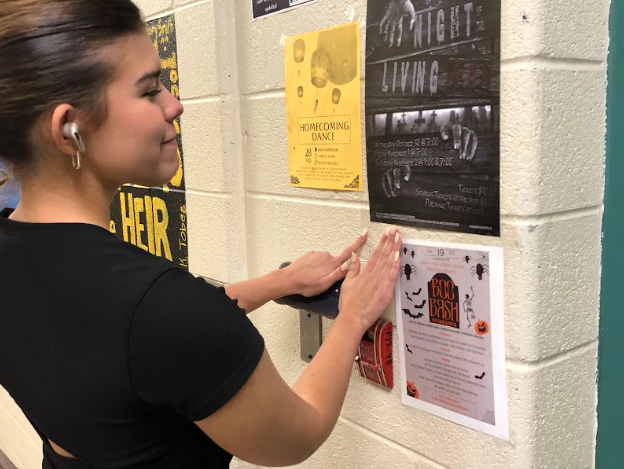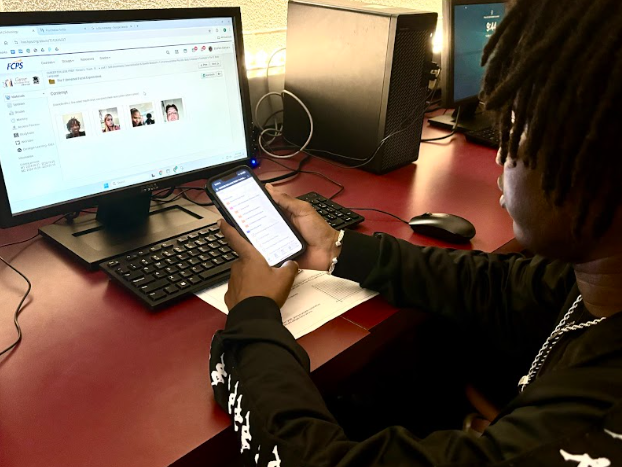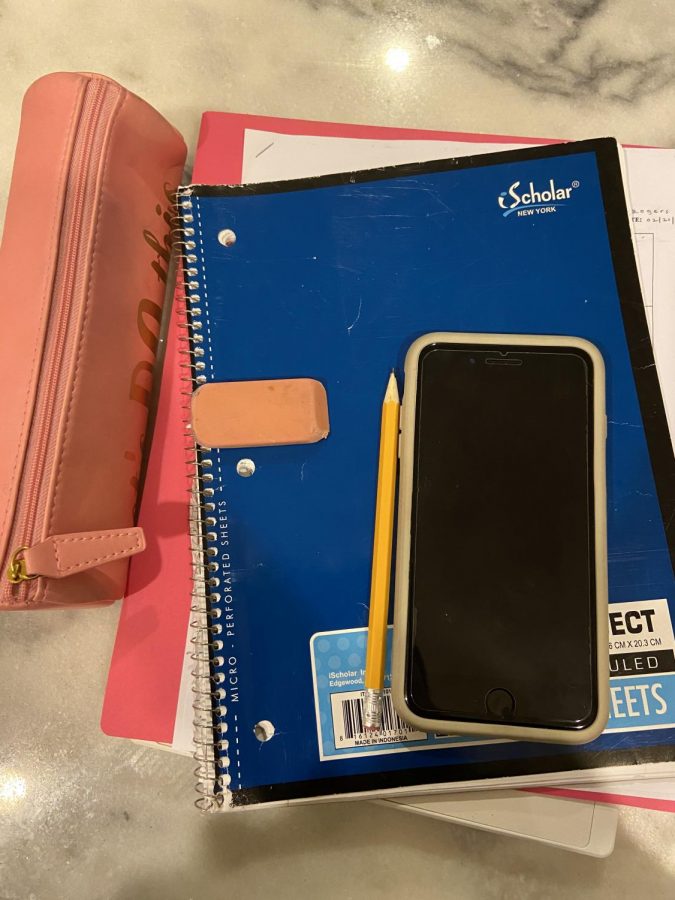How Does UHS’s Phone Policy Affect Student’s Learning?
February 28, 2020
Urbana High School’s current Electronic Device Policy states that “students may use devices to participate in teacher-approved activities and for educational reasons in support of FCPS curriculum for instructional purposes.” Although this policy allows the use of electronic devices for school sanctioned activities, many teachers are reluctant to allow phone use and instead offer the use of laptops. However, on the FCPS network or an FCPS device, useful resources have been blocked, which is why mobile phones are sometimes a better classroom resource.
This poses the question: Does allowing students access to mobile phones in the classroom positively or negatively impact their learning? Most students would probably say that mobile phones are a useful tool in the classroom because they allow quick access to a world of information. Teachers, however, may disagree and think that mobile phones serve as a distraction to students and impair their learning experience. The truth is, there are both positives and negatives to allowing mobile phone use in the classroom.
It is recommended that teenagers do not exceed two hours of screen time per day, but the average child spends over seven hours looking at a screen. Although this use is not directly attributed to phone use, banning the use of mobile phones in the classroom may reduce the amount of screen time students are exposed to on a daily basis. Not allowing mobile phone use in the classroom may also help to eliminate cases of academic dishonesty. Phones are smaller than computers so it is easier for students to quickly search up answers to questions on a test. According to a study published in Educational Psychology, students who had electronic devices present during class time scored lower on exams than students who didn’t. The use of an electronic device while a lecture is occurring divides the attention of students. Even the presence of devices in the classroom affected the students’ learning experience.
However, mobile phones are a way for students to stay organized. Many students use their phones to write down reminders about homework or upcoming deadlines for assignments. Phones also establish a way for students to communicate with their parents about after school plans. Additionally, since the mobile phone policy is not uniformly enforced, it makes it difficult for students to keep track of when they can and cannot possess their phones. Historically, banning the use of something does not stop it from occurring, but rather just makes it harder to do. This can be applied to cell phone use because with the current policy, students just sneak the use of their phones, which further distracts them from the lesson.
Some websites that FCPS has deemed not educational and therefore blocked are actually useful in the classroom. For example, IMDb and YouTube are resources for film study, but students are not able to access these websites on the school network. This forces them to use their mobile phones instead.
To secure the opinion of the student body, I asked several students if they think Urbana High School’s mobile phone policy has improved their learning experience. Junior Morgan Spencer said, “I just think that it’s annoying because I have to pull out my chromebook every time I need to search something.” Junior Aizah Usmani replied, “I feel like we should be allowed to use our phones as long as it does not distract other people.”
In conclusion, there are both benefits and disadvantages to allowing mobile phone use in the classroom. Although student and teacher opinions may differ, phones are a valuable resource if utilized properly.
Sources:
https://www.forbes.com/sites/alexledsom/2019/08/30/the-mobile-phone-ban-in-french-schools-one-year-on-would-it-work-elsewhere/#24bb620c5e70
https://news.rutgers.edu/cellphone-distraction-classroom-can-lead-lower-grades-rutgers-study-finds/20180723
https://www.cbsnews.com/news/parents-need-to-drastically-cut-kids-screen-time-devices-american-heart-association/
https://www.tandfonline.com/doi/full/10.1080/01443410.2018.1489046




































